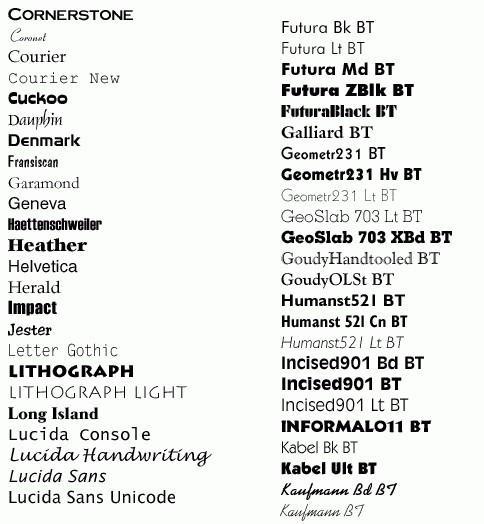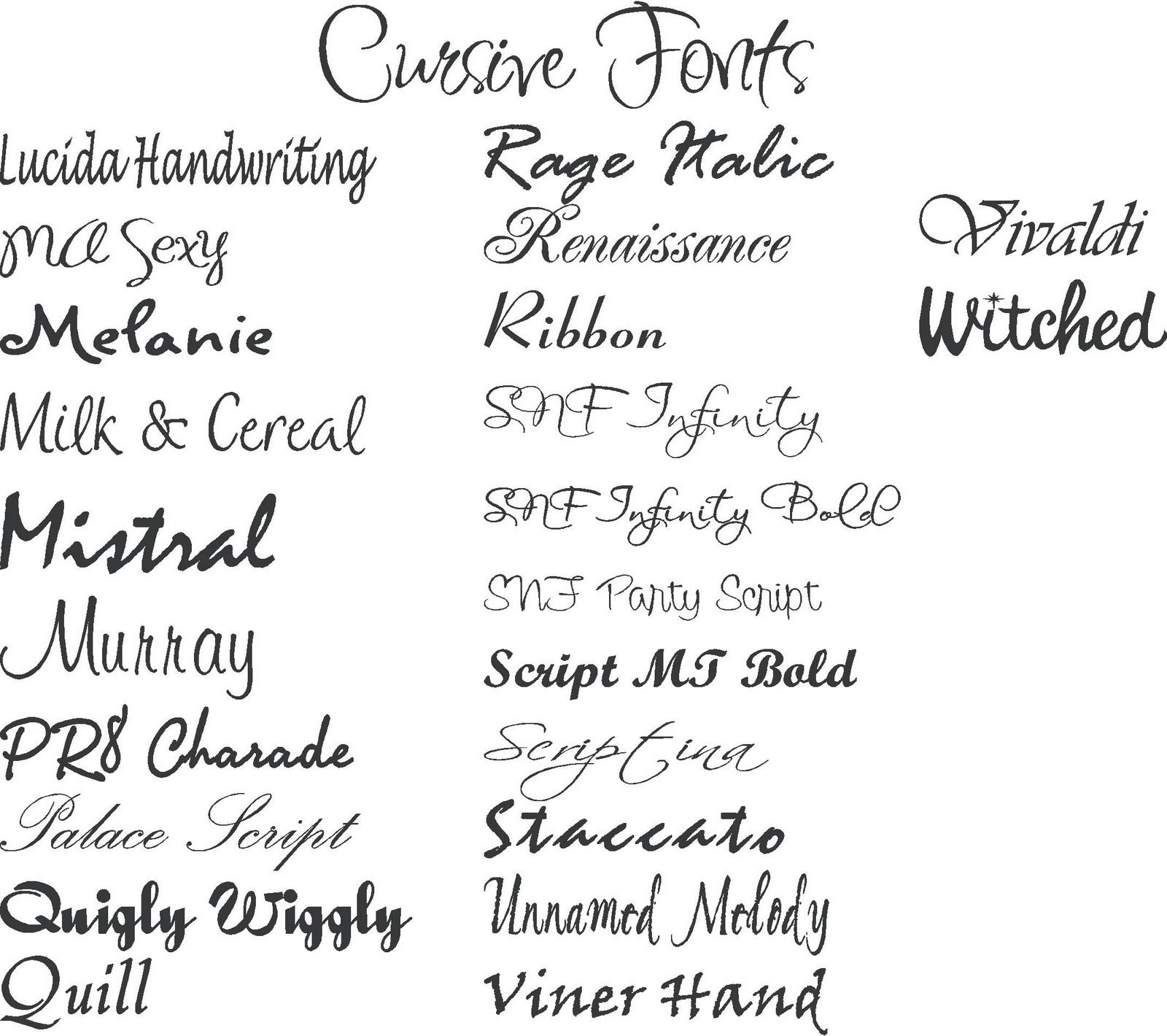Ever wondered how websites achieve that distinct visual flair? It's not magic, it's typography. And at the heart of web typography lies the HTML font family. This seemingly simple attribute wields immense power over the look and feel of your digital creations. Mastering font selection is crucial for crafting a captivating online experience.
Choosing the right typeface for your website can significantly impact user engagement and brand perception. Think of it as the digital equivalent of choosing the right outfit. Just as clothing conveys personality and style, so too do fonts. A playful script might suit a children's blog, while a clean sans-serif typeface projects professionalism for a corporate site. Understanding the nuances of HTML font designations unlocks a world of design possibilities.
The evolution of web typography is a fascinating journey. In the early days of the web, designers were limited by the fonts available on users' computers. This meant relying on a handful of "web-safe" fonts like Times New Roman and Arial. The advent of web fonts revolutionized this landscape, allowing designers to incorporate custom typefaces, significantly expanding creative freedom in web design and enhancing the visual richness of online content.
Specifying typefaces in HTML involves the `font-family` property within style attributes or CSS. You list preferred fonts, separated by commas, with a generic fallback like `serif` or `sans-serif` at the end. This ensures a visually appealing display even if the user's system lacks the specified fonts. However, managing font stacks and ensuring cross-browser compatibility can present challenges. Careful selection and testing are key to a consistent user experience across different devices and browsers.
Beyond the basic mechanics, the art of font pairing and selection delves into the psychology of typography. Different fonts evoke different emotions and associations. A sharp, geometric sans-serif typeface can project modernity and innovation, while a classic serif font might convey tradition and authority. Understanding these nuances is crucial for crafting a cohesive brand identity and engaging user experience.
One major issue developers face is ensuring consistent rendering across different operating systems and browsers. While specifying a font stack offers a fallback mechanism, discrepancies can still occur. Another challenge is managing web font performance to avoid impacting page load speeds.
Benefits of Using Appropriate HTML Font Families
1. Enhanced Brand Identity: Choosing fonts that align with your brand's personality helps solidify its visual identity. For example, a fashion blog might use a stylish script font, while a tech company could opt for a sleek, modern sans-serif. 2. Improved Readability: Selecting legible fonts and adjusting their size and spacing enhances readability, making the content more accessible and engaging for users. A website with long-form articles benefits from highly readable fonts like Georgia or Open Sans. 3. Optimized User Experience: A well-chosen typography enhances the overall user experience by creating a visually appealing and easy-to-navigate website.
Advantages and Disadvantages of Web Fonts
| Advantages | Disadvantages |
|---|---|
| Wider design choices | Potential performance impact |
| Enhanced branding | Licensing costs (for some fonts) |
| Improved readability | Cross-browser compatibility issues |
Best Practices
1. Limit the number of fonts used on a page.
2. Prioritize web-safe fonts for core content.
3. Optimize web font loading to minimize performance impact.
4. Test font rendering across various devices and browsers.
5. Consider the accessibility implications of font choices.
Real World Examples: Medium (serif fonts for readability), Airbnb (clean sans-serif), The New York Times (classic newspaper fonts).
FAQ
1. What is a font family? A font family is a set of related fonts.
2. How do I specify a font in HTML? Use the `font-family` property in CSS or style attributes.
3. What are web-safe fonts? Fonts commonly installed on most operating systems.
4. What are web fonts? Fonts downloaded from a server.
5. How do I optimize web font performance? Use techniques like preloading and subsetting.
6. How do I ensure cross-browser compatibility? Test and use font stacks.
7. What are some popular font families? Arial, Helvetica, Times New Roman, Georgia.
8. How do I choose the right font for my website? Consider your brand, target audience, and content.
Tips and Tricks: Explore font pairing resources online. Use browser developer tools to inspect and troubleshoot font rendering issues. Leverage font preview tools to experiment with different typefaces.
In conclusion, the HTML font family is a fundamental element of web design, influencing user experience, brand perception, and website accessibility. From the earliest days of "web-safe" fonts to the expansive world of web fonts, typography has played a crucial role in shaping the digital landscape. By understanding the nuances of font selection, optimization, and best practices, you can harness the power of typography to create captivating and engaging online experiences. Experiment, explore, and refine your approach to font selection. Continuously test and iterate to ensure optimal readability and a cohesive visual identity. The right typography can transform your website from functional to exceptional, leaving a lasting impression on your audience and strengthening your brand presence in the digital realm. Take the time to master this essential design element and unlock the full potential of your website's visual communication.
Visualizing the malay sultanate of malacca
Unlocking history the power of silang kata sejarah tingkatan 1
Celebrating sadie finding the perfect happy birthday image
font family names for html - Khao Tick On
font family names for html - Khao Tick On
Font book mac list - Khao Tick On
list down at least 25 font style theme fonts of Microsoft Word 2016 - Khao Tick On
font family names for html - Khao Tick On
font family names for html - Khao Tick On
font family names for html - Khao Tick On
font family names for html - Khao Tick On
CSS Basics Fallback Font Stacks for More Robust Web Typography - Khao Tick On
Simple Different Types Of Font Family In Css With New Ideas - Khao Tick On
font family names for html - Khao Tick On
font family names for html - Khao Tick On
Web Safe Font Families - Khao Tick On
font family names for html - Khao Tick On
font family names for html - Khao Tick On














